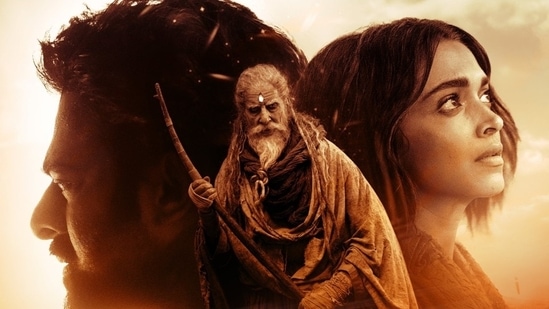Table of Contents
Kalki 2898 AD worldwide box office collection day 9: The film, which released in theatres on June 27, has been earning really well worldwide. As per the film’s team, Nag Ashwin’s multilingual 3D spectacle has entered the ₹800 crore club within nine days of its global release. (Also Read | Kalki 2898 AD: Prabhas wanted Amitabh Bachchan to hit him harder in action sequences, reveals Nag Ashwin)

Kalki 2898 AD earns ₹800 crore
Taking to Instagram on Saturday, Vyjayanthi Movies, the production house behind the film, shared the new numbers. It shared a poster featuring Prabhas. The words on the poster read, ” ₹800 crore GBOC worldwide.” The caption read, “The box office on fire (fire emoji). #EpicBlockbusterKalki in cinemas.”
About Kalki 2898 AD
Directed by Nag Ashwin, the film also stars Amitabh Bachchan, Kamal Haasan, Deepika Padukone, Disha Patani, Saswata Chatterjee and Shobhana. Vijay Deverakonda, Dulquer Salmaan and Mrunal Thakur have cameos in the film.
Kalki 2898 AD, mounted on a reported budget of ₹600 crore, released in Telugu, Tamil, Kannada, Malayalam, Hindi, and English. The post-apocalyptic film is inspired by Hindu scriptures and set in the year 2898 AD. The film, a blend of the Hindu epic Mahabharata and science fiction, is produced by Vyjayanthi Movies.
Amitabh on Kalki 2898 AD
On Friday, Amitabh Bachchan expressed gratitude to fans for the love that has come his way for Kalki 2898 AD. He praised the “audacious mind” of Nag Ashwin for transforming the Hindu epic Mahabharata for modern-day viewing. He starred as the immortal warrior Ashwathhama in the sci-fi spectacle. In a long post on his blog, Amitabh said he watched Kalki 2898 AD for the third time recently.
“The experience just keeps building .. every time you notice and admire the pains taken by the Director in purring this massive vision in fructification, and presenting it in a manner that makes the film historic .. historic not just in its commercial prospects, but historic in its values of the audacious mind of the Director in metamorphosing the legend of the Mahabharat with its manifestation after 6000 years, into the viewage of modern day humans that go to see the film TODAY in 2024,” he wrote.

